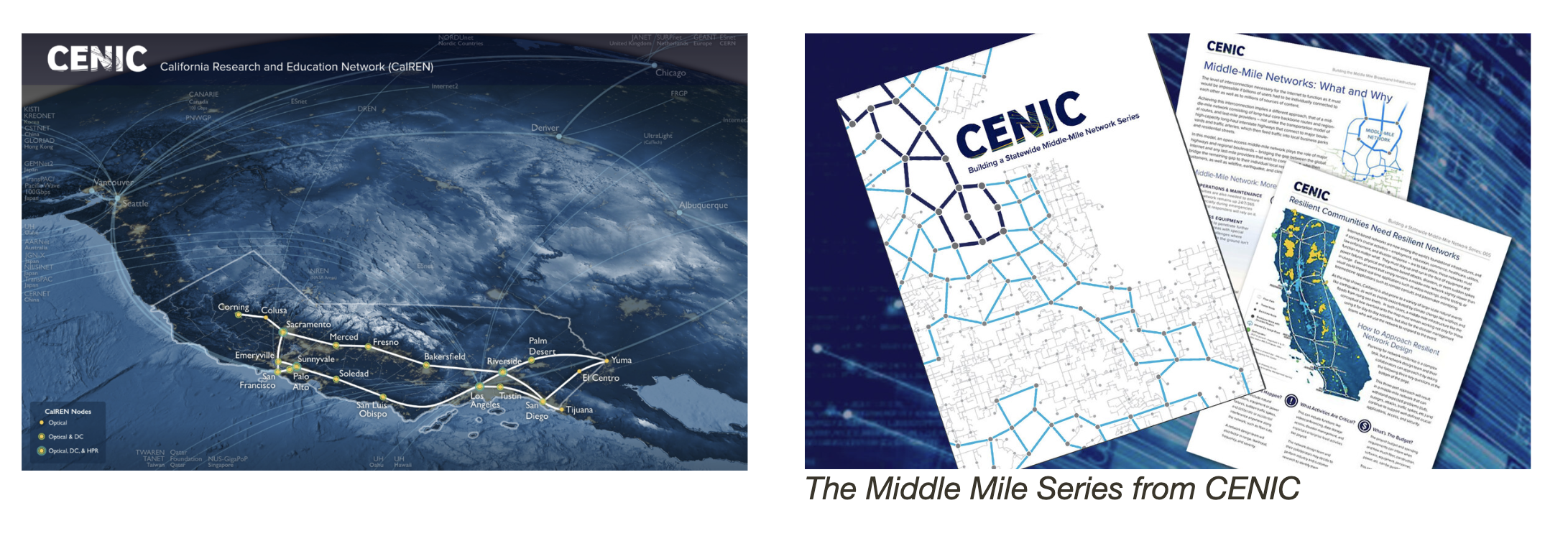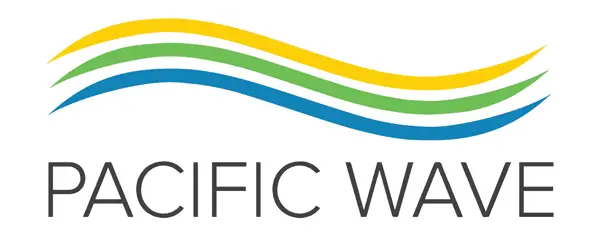- About
- Network
- Community
- Initiatives
- News
- Events
- Blog
- Publications

CENIC's Role in the "Broadband for All" Initiative
Categories RENS & NRENS Equity & Access GOLDENSTATENET

For those with a sense of history, it was predictable California would be ahead of the national push to extend broadband Internet connectivity to its under and unserved communities. As the arguable birthplace of the Internet, there was broad recognition of the need to ensure that all its neighborhoods, no matter how geographically challenging, had access to the power of the global knowledge and collaborative potential available online. In fact, it has been the focus of a number of California policy leaders for much of the past decade. CENIC leaders have consistently been among the “go-to” experts assisting these policy makers, as digital equity has been part of CENIC’s mission since it began 27 years ago.
As support and deeper understanding grew of the historical inequities of broadband access, a global pandemic provided the final tipping point that led to Governor Newsom’s successful “Broadband for All” legislation (SB156) that passed the State Legislature in July 2021. The bipartisan effort provided a historic $6 billion multi-year investment to bridge the digital divide by expanding equitable access to high-speed broadband service throughout the state, including the charge of creating an open-access middle-mile network. CENIC worked with legislative and administration leaders to develop facets of the digital equity plan that was at the core of the legislation.
When asked if CENIC would respond to an RFP for a third-party administrator, CENIC’s President and CEO Louis Fox declined, noting a long history of collaboration with the private sector, and relationships that are mutually supportive and beneficial, not competitive. The legislation, as it became known, instead called for a non-profit organization with CENIC’s core skills of connecting education and research institutions.

Subsequently, the Governor’s Office, the Department of Finance, and the California Department of Technology asked CENIC to be the third-party administrator and after discussion with the Board of Directors, CENIC agreed to take on this role. While many of the disciplines within CENIC would be critical to the development of a middle-mile network, President and CEO Fox decided to create a solely owned limited liability corporation that would have dedicated staff who would focus on this state’s middle mile initiative. Thus the CENIC California Middle Mile Broadband Initiative LLC, doing business as CENIC GoldenStateNet was born and would function as the third-party administrator (TPA) to develop and deliver the open-access middle-mile broadband network for California in collaboration with the California Department of Technology (CDT).
CENIC, the nonprofit Corporation for Education Network Initiatives in California, has 27 years of experience designing, operating, maintaining, and upgrading the high-performance, high-bandwidth California Research and Education Network (CalREN) on behalf of its membership of private and public universities and colleges, K-12 schools and districts, California public libraries, health care, tribes, and cultural institutions. That translates to 27 years of working closely with these members in addition to other US and international networking organizations; tribal nations; research, education, and digital equity advocacy groups; and commercial vendors. More than 20 million Californians rely on CalREN for all that the Internet provides in the worlds of work, research and education, healthcare, and cultural engagement, and this legacy of expertise and advocacy made CENIC GoldenStateNet the logical partner for the CDT and the “Broadband for All” initiative.

CENIC’s design engineering talent, led by Sana Bellamine and Brian Court along with numerous colleagues across all engineering disciplines and operations, have been crucial to the successful early progress logged in the middle mile initiative. In less than two years from the signing of SB156 and working with colleagues, vendors, and other partners, CENIC’s GoldenStateNet has accomplished the following:
Delivered backbone and lateral map designed for robustness, resilience, cost, and energy efficiency, and projected growing demand, using California Public Utilities Commission (CPUC) recommended routes.
Created detailed Bills of Materials of all necessary core equipment, build diagrams, and power requirements needed for the network;
Created a program plan for the design and creation of the Middle Mile Broadband Initiative (MMBI);
Created an extremely detailed System Level Design (SLD) outlining all of the above in detail;
Leveraged existing CENIC relationships during outreach to vendors and those interested in joint-build opportunities;
Created a business model and projected revenue plan based on the products and services that the middle-mile network can offer to last-mile providers; and
Created a list of requirements for all back-end tools needed for the support and operations of the state’s Middle Mile Broadband Initiative into the future, such as a Fiber Management System (FMS) and Operations Support System (OSS).
In service of the above deliverables, CENIC GoldenStateNet and its colleagues, vendors, and other partners analyzed extensive resources to understand existing telecom and other infrastructure, road and highway systems, geographic and business factors, as well as the socio-economic characteristics of various regions. The organization engaged with community groups and service providers to understand needs, requirements, and potential opportunities as well as identify regions where the unserved population is more than five miles from the current planned design.
Much of this work effort was in preparation for analyzing an optimal middle-mile network within the $3.25 billion budget of the project that uses well-established best practices in network design principles, protocols, engineering, and sustainable operation. Throughout this process, CENIC staff have worked side-by-side with their CENIC GoldenStateNet colleagues.

About CENIC | www.cenic.org
CENIC connects California to the world—advancing education and research statewide by providing the world-class network essential for innovation, collaboration, and economic growth. This nonprofit organization operates the California Research and Education Network (CalREN), a high-capacity network designed to meet the unique requirements of over 20 million users, including the vast majority of K-20 students together with educators, researchers and others at vital public-serving institutions. CENIC’s Charter Associates are part of the world’s largest education system; they include the California K-12 system, California Community Colleges, the California State University system, California’s Public Libraries, the University of California system, Stanford, Caltech, USC, and the Naval Postgraduate School. CENIC also provides connectivity to leading-edge institutions and industry research organizations around the world, serving the public as a catalyst for a vibrant California.
About CENIC California MMBI, LLC (dba GoldenStateNet) | www.goldenstatenet.org
CENIC California Middle-Mile Broadband Initiative, LLC dba GOLDENSTATENET, is a California limited liability company whose sole member is the not-for-profit Corporation for Education Network Initiatives in California (CENIC). CENIC California MMBI, LLC serves as the third-party administrator in cooperation with a wide range of stakeholders – municipal, state, Tribal, private sector, and other community organizations. Together, we are developing a California statewide open-access middle-mile broadband network the goal of which is to enable last-mile providers to offer their customers affordable open-access broadband connectivity to the global Internet throughout California, prioritizing areas that have no access or slow and ineffective connections. CENIC California MMBI, LLC will work with public and private sector partners to bridge the digital divide and create digital equity for all Californians.
Related blog posts
Pacific Wave Signs MoU with New Japan-Based Research and Education Exchange Facility FUJIXP
Pacific Wave, International Networks at Indiana University (IN@IU), and Coalition of Interoperable Networks for Japan (CINJI) and International have signed an MoU formalizing connectivity to FUJIXP, CINJI's new Tokyo-based open exchange facility for research and education networks.
The Big Game Is Big Data: How CENIC and the California Research and Education Network Support Member Athletics
When Fresno State needed to connect to Pac-12 Enterprises to broadcast a live football game over CBS, the Chancellor's Office reached out to CENIC for what Pac-12 later called the smoothest turn-up they've ever experienced.


